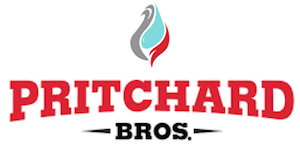AMES, Iowa—When Sue Kuennen was named the Iowa Conservation Woman of the Year in 2016, she was surprised by the recognition. She always assumed the things she was doing to improve her 160-acre farm were the same as other farmers were doing.“It was truly amazing to me the practices I have implemented that others were not already doing,” said Kuennen.Her commitment to crop rotation, improving wildlife and pollinator habitat, and improving water quality and drainage has been part of her DNA since she and her husband, the late Jim Massman, bought the farm in 2010.By participating in the conservation programs of Iowa State University Extension and Outreach, Kuennen has expanded her knowledge of conservation and the types of projects she has undertaken on her land. Just two years ago, she completed one of extension’s premier conservation training programs – called the Iowa Master Conservationist Program.This multi-session program helped solidify some of what she already knew about conservation and broadened her knowledge of what was still possible.“It really doesn’t make any difference whether you have a good operation or the best operation, when you go to educational events, there is always something you didn’t know or hear about,” she said.Kuennen has implemented a variety of new conservation projects in recent years. She strives to plant 100 new trees a year on her property for wildlife habitat and for erosion control. She’s improving water quality through the creation of a water collection basin and silt pond, with plans to build a check-flow dam, and she also maintains a hive of honeybees in an effort to increase pollinators.Diverse backgroundsKuennen is not alone. Since the Master Conservationist Program was revived in 2017, nearly 400 people have completed the training, from diverse backgrounds.Nancy Franz, who worked more than 30 years in the Land Grant system and retired from ISU Extension and Outreach in 2014, completed the Master Conservationist Program in 2019.Sue sits.For Franz, a Wisconsin native, the program was a way of improving her knowledge of Iowa’s conservation landscape and informing her work on the Story County Conservation Board, where she serves as vice chair.“I’m a lifelong learner and since most of my background had been in Wisconsin, this program gave me a much stronger natural resources map of Iowa,” she said. “The sessions gave me information that I could use for decision making and share with others on the conservation board what other entities are doing.”Franz said she appreciated that the sessions were mostly in the evenings, with a few Saturday mornings. The curriculum combines both online and in-person learning, so that participants can learn at their own pace online and gather for the in-person field events.Online and in-personThe online sessions are universal, ensuring all participants get the same core education. The in-field events, however, are tailored toward the county or region offering the program, so that participants can see projects and people in their own community.“Each online session is paired with an in-person event, so that participants get a chance to take a deep dive into the natural resource stewardship happening in their own communities,” said Adam Janke, assistant professor in natural resources ecology and management and extension wildlife specialist at Iowa State University.The goal of the program is to equip Iowans interested in natural resource conservation with the knowledge and skills necessary to make informed decisions about natural resources and become local leaders and educators. As Janke sees it, “The program really is for anyone, because everyone has a role to play in land stewardship in Iowa, whether they’re rural or urban, landowners or not.”That being true, he sees particular interest from those connected to agriculture, natural resource professionals, those in retirement and those who simply want to do their part to protect and preserve Iowa’s natural resources.Conservation at homeBrian Tugana lives on a five-acre property in Clinton County where he maintains wildlife habitat, a mix of hardwoods and a little over 16,000 flowering spring bulbs that he recently planted.A retired medical doctor and psychiatry specialist, he spent a large part of his career helping nurture people back to health. Now, he says his passion is to nurture the land and those who are trying to protect it.“I think Master Conservationist is a wonderful program and if you haven’t started applying some of these practices around your own property, hopefully the program will motive you to do so, because if you do, it will be incredibly rewarding,” he said.Tugana completed his Master Conservationist training in 2021 and continues to use his skills around his property. He has seen a noticeable increase in deer and other wildlife and said each year brings new surprises in both plants and animals.“We’ve had wonderful experiences with wildlife since making these improvements,” Tugana said. “Just being able to look out our window and see the wonderful cycle of nature unfold before us makes the effort worthwhile.”Offering the programThe Master Conservationist Program has been offered in more than 40 counties across Iowa since 2017, with the goal of adding additional counties each year.County extension leaders who have offered the program say the experience was positive, with a spirit of collaboration among state and local conservation leaders.Sarah DeBour, extension director for ISU Extension and Outreach in Cerro Gordo County, said one of the reasons she was hired, in 2019, was to help offer the program in her county.“The Master Conservationist Program is a must for anyone interested in growing in their network, understanding and knowledge of conservation in Iowa,” said DeBour.Her county partnered with others in her region to offer the program to 17 participants in 2021.To prepare, she met with county extension directors from her region, and the group planned a schedule that would include local speakers and visits to local conservation projects, including a landfill, a fossil park, and Ventura Marsh – where participants studied aquatic ecosystems.“It’s a good program and is well laid out across seven weeks,” DeBour said. “Participants learn about conservation across Iowa and especially in their own region.”Raymond Kruse, food systems program coordinator and master gardener coordinator for ISU Extension and Outreach in Dubuque County, offered the program for the first time in 2021.Participants included rural and urban property owners, including those who wanted to know more about managing their trees and lawns.“We had a spectacular group of participants and it turned out very well,” said Kruse. “We had some awesome conversations and a great dynamic of people.”Field trips included a forest management and timber harvest lesson provided by a forest manager of the local monastery, stream sampling with the Izaak Walton League of America, and a local farm.Dubuque County is planning to offer the program again this year, with dates still to be determined.“The program prepares people to go out and do conservation on their own property,” said Kaycie Waters, natural resources extension education specialist with ISU Extension and Outreach. “Along the way, graduates talk to others about how they can be more sustainable with their practices or put additional conservation into action.”To learn more about the program, including local offerings, visit the ISU Extension and Outreach Natural Resource Stewardship website. More than a dozen offerings are already scheduled, and Iowans can request an offering by their county extension and outreach office if their county is not on the list.
(contributed article and photo, ISUANR)











